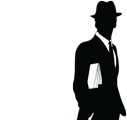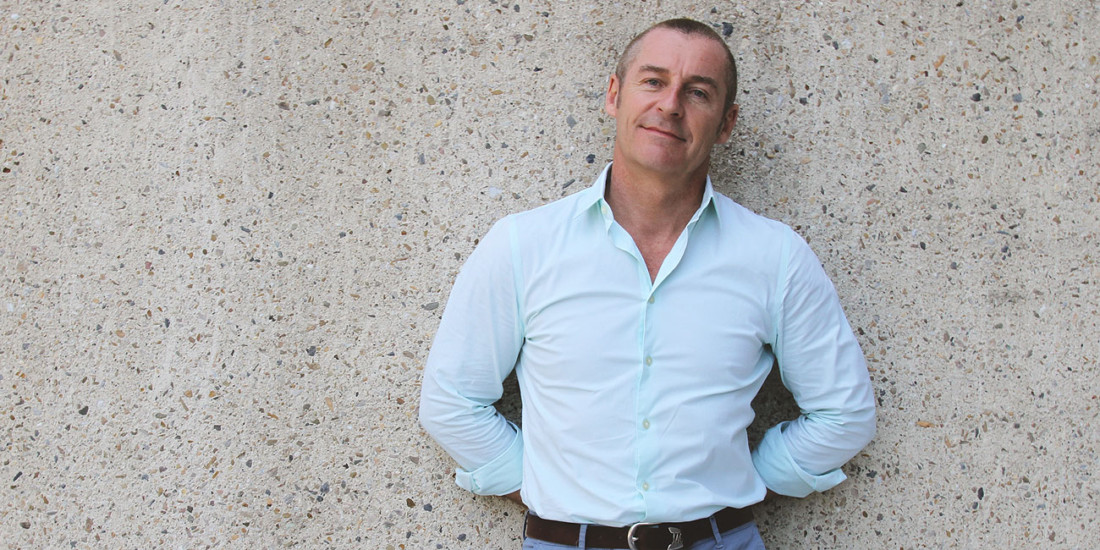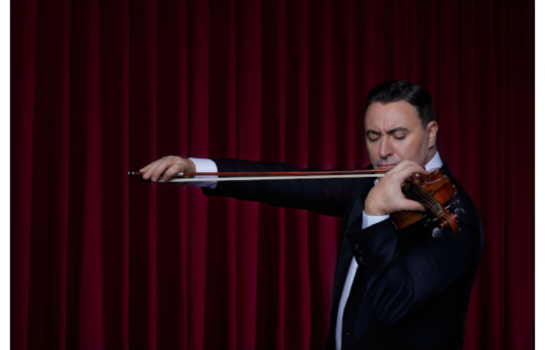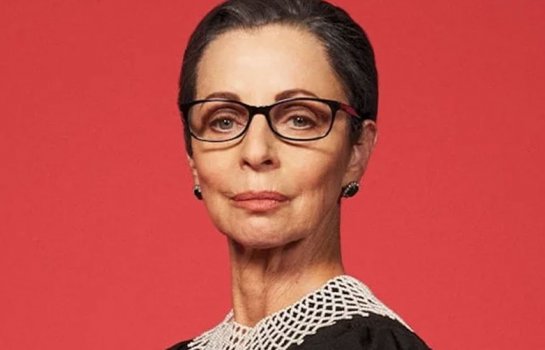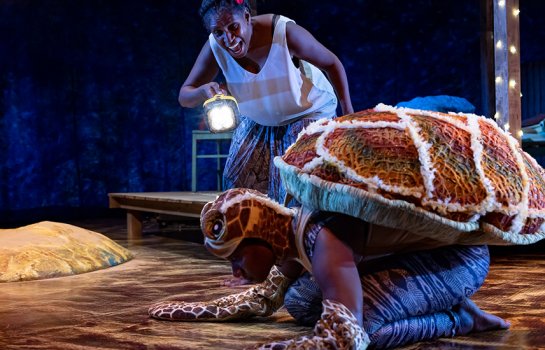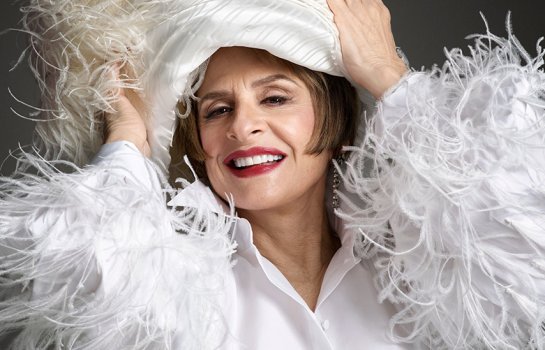Paul Dyer, co-founder and artistic director, Australian Brandenburg Orchestra
It’s a special thing to hear the live, unadulterated collision of musicians playing together ...
Every now and then, a visionary comes along who shakes up our preconceptions and opens our minds. Paul Dyer, artistic director of the Australian Brandenburg Orchestra and the Brandenburg Choir, is one such man. Having co-founded the orchestra 25 years ago, Paul has helped changed the perception of baroque and classical music in Australia, by flipping the so-called ‘stuffy’ genre on its head and presenting historically significant pieces in a more modern framework. This year, Paul is at it again, hopping behind the synthesiser to bring international composer Max Richter’s reimagining of Vivaldi’s ‘The Four Seasons’ to the Australian audience, with Brisbane experiencing the incredible world premiere on period instruments. Before Vivaldi Unwired comes to the QPAC Concert Hall in May, The Weekend Edition took the opportunity to talk to Paul about seasons and synthesisers.
What can local audiences expect when Vivaldi Unwired comes to QPAC on May 11 and 19?
I believe Vivaldi’s ‘The Four Seasons’ is probably one of the most – if not the most – well-known pieces of classical music ever written. It was originally written for baroque violin and strings but now it’s been recorded by many different groups. You name it – everyone’s tried it, and simply because of Vivaldi’s genius. This guy was an absolute genius to write a piece that connects with every single person, whether you’re 16 or 96. What I find amazing about his work is that every time I perform it, everyone has a really deep connection with it and there’s a huge excitement because it creates an emotional journey with people. When you think about, Vivaldi would have been so excited that there’s a bunch of people on another continent on the other side of the earth who are playing his music 350 years later. That is so fabulous!
What do you personally love about ‘The Four Seasons’?
I just love the idea that this piece of music can speak to everybody in society, even if you’re into goth, rap, pop – it’s just the most appealing piece of music. So that’s my message: if you’ve never had access to classical music before, this is absolutely your way in. They’re in short bursts and they create images straight away. It’s a very personal thing when you come along to a concert; even if you come with your boyfriend, your friend, your wife, your mother, your grandmother – it doesn’t really matter, it’s a personal experience. Vivaldi wrote this music to be heard – of course there are millions of recordings of ‘The Four Seasons’, including ours, which won an ARIA Award some years ago, but while I think recorded music is fantastic, there are many things you discover about people and yourself in a live concert. It’s a very exciting, special thing to hear the live, unadulterated collision of musicians playing together – it’s like an explosion. You just don’t get that from recorded music.
It sounds like it’s set to be an incredible live experience …
Oh this particular concert is going to be very unlike most classical concerts because I love it to be an experience. I’ve encouraged the Australian Brandenburg Orchestra to really engage with the audience – I’m not into that old-fashioned idea of just putting your head down and playing. We’re the go-between between the composer and the people who are receiving the music.
Yes, I remember a review that said it was lovely because the audience could see the members of your orchestra smiling at each other and interacting during a performance.
Yes I’m renowned for that – it’s what I was criticised for 25 years ago when I was 20 and no-one had ever done that before. But I thought, just because we’re playing classical instruments, why can’t we show what we’re feeling? It doesn’t matter what age you are – just show what you feel. I love the idea that you can have an experience. This concert, while it will be straight in the first half, and we’re even doing our namesake Bach’s ‘Brandenburg Concerto No. 3’, the showpiece for the concert will be the Max Richter version in the second half.
What can you tell us about Max, the man who’s taken on Vivaldi?
Max is amazing, he’s a composer who was born in Germany but is now based in London. He has taken this incredible musical treasure and he’s flipped it and turned it upside down. He’s taken Vivaldi’s work and thought, “That’s such as amazing piece of music, how can I make it stand out in more of a modern context?” And because he’s so clever and writes a lot of music for films, I really think he’s created an emotional journey. There’s no time warp here, it’s an incredibly vibrant thing, and when people hear this music and the underlay that Max has written they’ll feel a bit like they’re in the music. It feels like a film score. It’s very modern. Then you’ll hear the opening of spring and you’ll hear Vivaldi come in with the birds, and then suddenly it’s flipped on its head in a really modern way with this gorgeous sound. Max has reworked Vivaldi so beautifully so people can feel excited, energised, sad, melancholy, lovesick – it’s really beautiful. They’re geniuses – both Max Richter and Vivaldi. Brisbane is the world premiere of Max Richter’s recomposed piece on period instruments and the person I’ve chosen to play the solo baroque violin part is Brisbane violinist Brendan Joyce, who is just an outstanding, visionary violinist.
We can typically find you behind the harpsichord, fortepiano or chamber organ, but this concert will plonk you behind a synthesiser and an Apple Mac. How are the nerves being out of your comfort zone?
Well that’s a really interesting point. Last Christmas, I gave myself a little test of playing dials and it was really interesting because you’ve got to be on the money pressing the right buttons at the right time! Everything’s been acoustic and pure in my life, and now all of a sudden I’m relying on technology. Everything has to be split-second timing and there’s quite a lot of improvisation on the synthesiser as well. The Moog just arrived this morning, it’s downstairs, I’m so excited! It was invented in Holland in the 1970s so it’s really cool to play. I want every 20-year-old to come and hear Vivaldi because I’m passionate, passionate, passionate about this music and what it means to Australians.
So the 20-year-olds will love it, do you think the purists will still find something to enjoy?
I think so! The first half of this program is a straight concert, so you can leave at interval if you want to … Vivaldi is a genius and Max is a genius, so putting that with Brendan Joyce and the Australian Brandenburg Orchestra – please give it a go! I think they’ll love it because there’s another layer, an imaginary, modern layer on it now.
Were you always musical, even as a child?
Well I was brought up playing the piano since I was four-and-a-half years old. I left school and went to Sydney University to study law, but I only lasted a month before I realised I was in the wrong room … So then I went to the music faculty and said, “You know me, I’ve been studying at the Conservatorium since I was 15.” It was a four-year bachelor of music and I reached the required level of the course with a High Distinction in the first semester, so they said “That’s the end of lessons” and I said “But I only just arrived!” This piano teacher I had was brilliant – I love people who are way ahead of their time, she was very visionary. I went to her house and she ushered me into the front room and it had all these ancient keyboard instruments and I had no idea what they were. I was like a kid in a candy store! So I started to play these harpsichords and fortepianos, and I just fell in love with the sounds. I really liked the idea of making baroque music passionate. I love the idea that in the 18th century in the baroque period, there were a lot of incredibly visionary people – in astronomy and astrology and medicine and food – so much was created in that time. They created spectacular monuments and palaces and they were gorgeous but there was always a distortedness to them – they were over the top. I left Australia to study in a very rigorous post-graduate international scene. It was very, very, very exciting. So then I came back and formed the Australian Brandenburg Orchestra and now we’ve won six ARIA Awards and toured the world, and I’m looking to the new generation of young players!
How have you seen Australia’s reception to baroque music change over the past 25 years?
Well I can only say that I think we’re now one of the major performing arts groups in Australia and we constantly sell out houses around the country. I think that’s because people love this type of classical music; that’s why I keep reinforcing that people who don’t know or are a bit scared of classical music – this is their access point. It’s short, it’s exciting and it’s got all these different emotions in it. I’ve tried to break down all those barriers and horrible stereotypes of the 20th century. I conduct all around the world and I just keep saying, let your guard down and enjoy the beautiful humanity that we have and allow people to laugh and cry together in our concerts. I think that’s why the orchestra is doing so beautifully, because I really wanted to create a culture of humanness and excitement and beauty.
Want to find out more? Check out this video of Paul and violinist Brendan Joyce in Brisbane.
